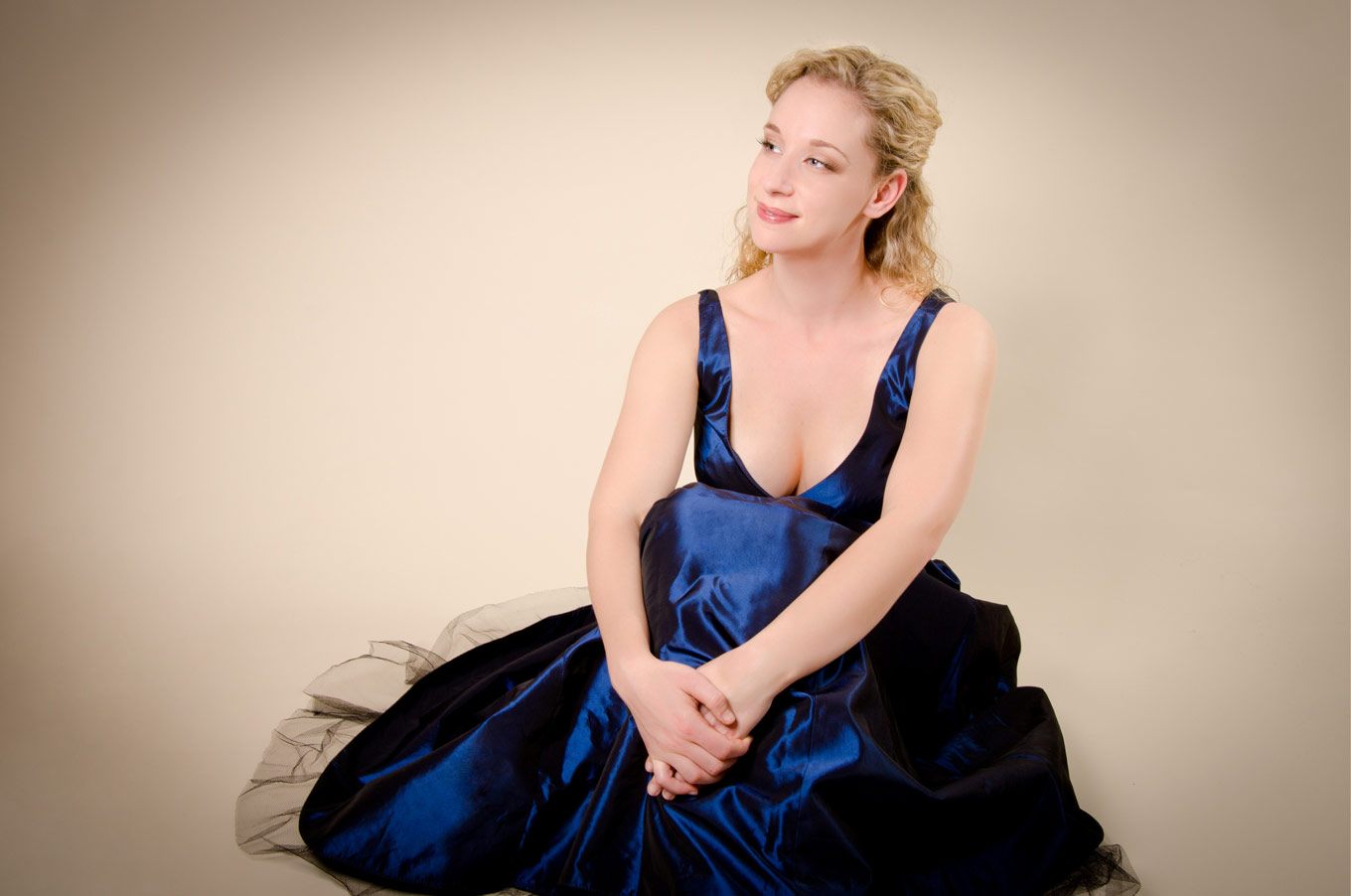
Spotlight on: Martha Jones
InterviewKept busy in recent season with Mozart (The Magic Flute, Così fan tutte), Monteverdi (Il ritorno d’Ulisse in patria), and Bach (St. John Passion), London-based mezzo-soprano Martha Jones heads this month to The Grange Festival, to sing Fanny Price in Jonathan Dove’s Mansfield Park. The newly-orchestrated work was commissioned to mark both the inaugural season of the Grange Festival, and the 200th anniversary of the death of Jane Austen.
We spoke with Jones about bringing literary characters to the opera stage, and her eclectic choices of “bucket list” roles.
Why do you sing, and why are you doing it professionally?
Music is such powerful form of expression and the opportunity to tell a story using music is irresistible to me. I relish the opportunity to create characters using music and text which is why I also love giving song recitals. I’ve sung constantly from a very early age, from riding around on my first bicycle singing to myself, to learning the words to the songs in my dance class so that I could sing along and spending my school holidays making up song and dance routines…. I used to drive my brothers mad, especially when I made them join in! As to why I’m doing it professionally, probably a combination of luck, ongoing hard work and stubbornness.
What does “good singing” mean to you? What does it feel like when you achieve it?
Good singing to me is when everything technically has slotted into the right place and allows freedom of expression to take over. This can happen when the ground work has been done to such a degree that in performance, every note and word can be “chosen” in the moment. It’s a very strange (almost out of body) experience! I feel that my body and brain are working together in such a way that I don’t need to think about “singing” and I can allow the character to come to the fore.
What do young singers need to do more of? What should they do less of?
To answer the second part of your question first, I really believe that everything can be a learning experience, so “less of” anything is perhaps not necessary. It’s important when starting out to remember that everyone has to follow their own path at their own pace.
As for the first part, I’m still working on my languages now and wish I had done more formal study when I had the time to focus on it. I think the benefits of being able to sight-read and play through material for yourself at the piano can sometimes be underestimated. If for nothing else, it’s great fun to sing through a lot of repertoire when choosing recital programmes to see what really fits you rather than relying on recordings.

Do you have any “bucket list” roles you’d like to sing (realistically or otherwise)?
I’ve already sung some of my “bucket list” roles, but I love coming back to the same role again as it’s always interesting to have a different cast and production to bounce off. Top of the list of roles that I’d love to revisit are Dorabella (Così fan tutte), Nancy (Albert Herring), Cherubino (Le nozze di Figaro), and Hänsel (Hänsel und Gretel). I’d also love to sing Zerlina (Don Giovanni), Sesto (Giulio Cesare) and Ruggiero (Alcina), which are all roles I’ve been working on but haven’t had a chance to air fully yet.
It’s a real privilege to work on contemporary works with living composers and, having had such a great time learning Mansfield Park, I’d love to explore more of Jonathan Dove’s work. Pinocchio (The Adventures of Pinocchio) would be a gift of a role. I spent a lot of time singing musical theatre before I went to college, so I wouldn’t turn down the chance to play Eliza Doolittle (My Fair Lady) or any of the legit musical roles; I always love an opportunity to brush off the dancing shoes!
You play Fanny Price in The Grange Festival’s production of Mansfield Park – how does it feel to be taking on a character rarely seen on the opera stage?
There’s an awful lot that has been written about the character of Fanny Price and I think the character has been brought to life in such a fantastic way in this piece that it’s been a thrill to explore. She is so bound by her (lack of) position, particularly at the start of the piece, that she often polarises opinions with many viewing her as weak, or a “goody-goody” caricature.
Far from being weak, I think there is incredible strength in how she remains so true to her own moral compass even in the face of strong objections from others. Whilst she feels deeply the strictures of her place in society, she refuses to play the marriage game purely to further her own position. She cannot conceive of marrying for anything other than true love and throughout the piece, her sheer good-hearted nature and steadfast spirit shine through. From her downtrodden start, she ends up being relied upon by everyone else. This is a character on the cusp of the most important stage of her life, and as such, the stakes are incredibly high making her a great character to play.
What have you learned about your career as a singer, solely through professional experience?
I’m still learning! There’s an incredible amount that can be learnt from watching other singers. I’m fascinated by the entire rehearsal process and I find it very interesting to watch others work when I’m not needed in a rehearsal room. I also find that the more thoroughly you can prepare your material, the easier it is to be open and adaptable in rehearsal and performance.
Mansfield Park plays at The Grange Festival September 16-17. For more details and ticket information, click here.

Comments